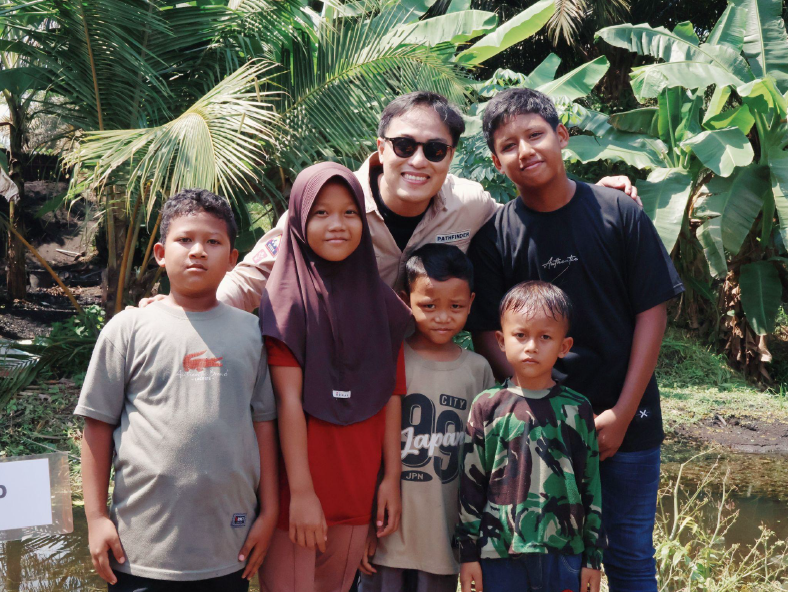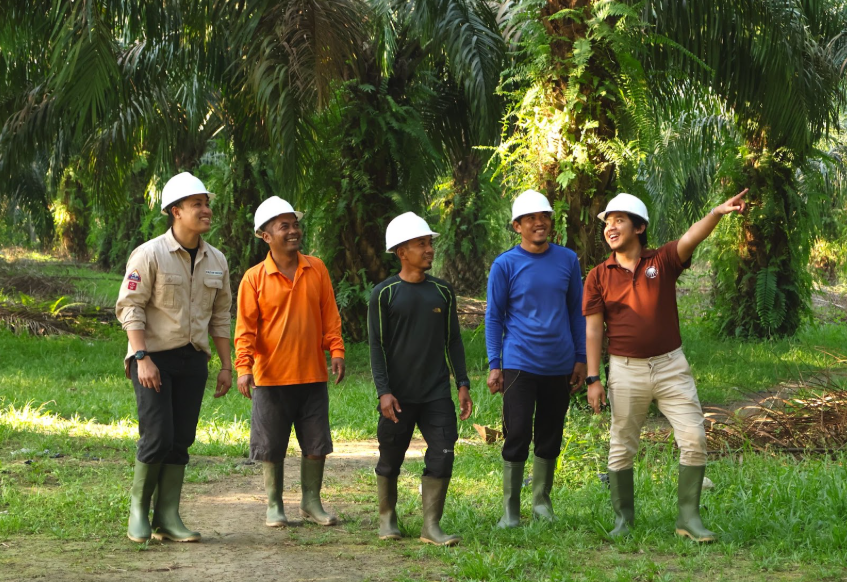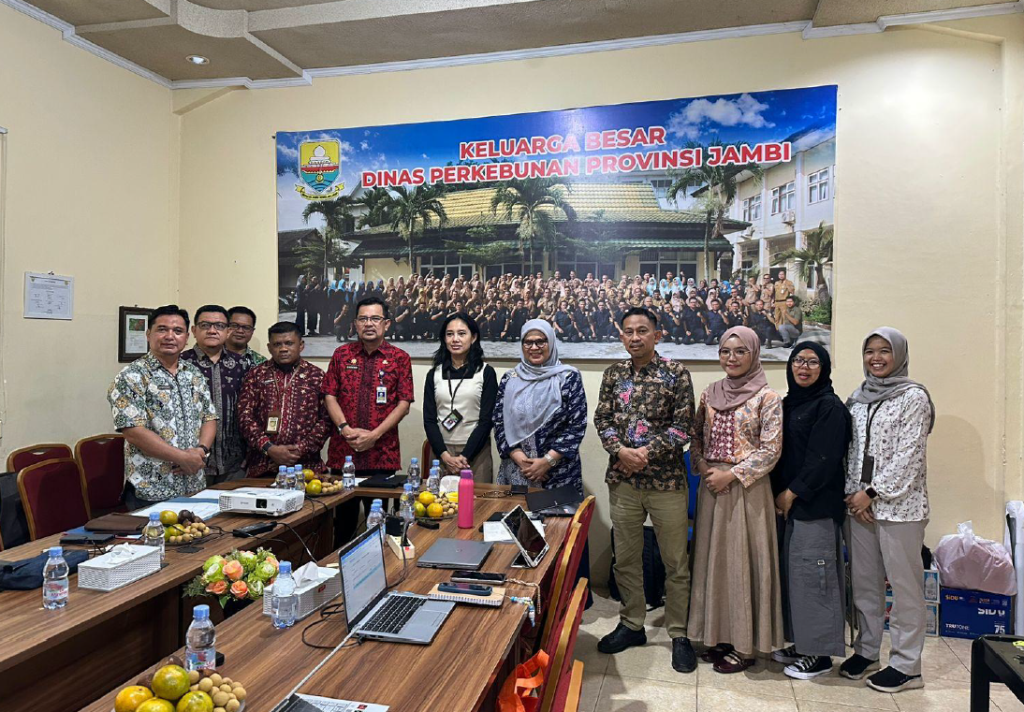By: Kurniawan Iskandar

Perhaps few know that from a young age I have had a deep connection with plantation life, especially in the palm oil sector. My father was the head of estates at PTPN XIV Nusantara and spent decades working in remote villages, managing plantations of palm oil, rubber, and sugarcane. Much of his life was dedicated alongside rural communities who depended on the fruits of the land.
Those memories are faint but warm. Every school holiday, my siblings and I were always taken on “holidays” to the estates. Walking through vast, orderly rows of tall oil palms, visiting processing mills, inhaling the sharp scent of freshly harvested fruit bunches, and witnessing firsthand how the entire plantation system operated from upstream to downstream — this was how my father introduced us to his world.
Time passed swiftly. My father passed away shortly after his retirement, when I was just starting my first year of high school. Since then, I never imagined I would set foot in a palm oil estate again. Until recently.
Back to roots
In July 2025, I had the opportunity to visit Merangin Village to conduct monitoring for the RSSF project, facilitated by Perkumpulan Alam Hijau (A-HI) as the implementing partner. This visit was not merely about project oversight but also witnessing firsthand the struggle of smallholders in the area striving to obtain RSPO Certification.
Located in Jambi Province, Merangin is a region where much of the land remains covered by lush oil palm and adjacent forests. When I arrived, the first thing I saw was the community working hand in hand, labouring and gathering together. It was deeply moving that it brought to mind the past, when women and children eagerly prepared festivities to celebrate the harvest.
That moment unlocked carefully stored memories from my childhood. It felt as though something in the universe was slowly pulling me back to my roots — to the place where my father once stood, worked, and bequeathed a legacy not in wealth, but in values: hard work, connection to nature, and respect for small communities.

The journey began with a memorable moment: the inauguration of Rowo Ombo as a High Conservation Value (HCV) area and water catchment zone. This initiative was led by the passionate Rowo Ombo community, dedicated to preserving nature. We were warmly welcomed by local residents who introduced their culture through traditional youth dances — a symbol of cultural preservation thriving alongside environmental conservation efforts.
We then proceeded to Tanah Abang Village, Merangin District, where independent smallholders from BUMDES Harapan Makmur have embarked on their path towards RSPO Certification. We listened firsthand to the farmers’ stories and hopes that deepened our understanding of how RSPO’s support can assist smallholders in gaining certification, ultimately improving their livelihoods.
I had the privilege to speak with the Village Head and several independent farmers, who shared the tangible impacts of the RSSF programme, which has been running for nearly a year. The programme provides significant training and capacity building, teaching the importance of sustainability and how to optimise plantation productivity without compromising environmental conservation.
From fish stocking to fruit tree planting
One of the most impressive achievements was the identification and designation of a new High Conservation Value (HCV) area, developed in collaboration with the local community and village government. This initiative aims not only to protect the environment but also to enhance the economic welfare of the community. As part of this conservation effort, we attended the HCV area inauguration, which included activities such as fish stocking and fruit tree planting. These efforts are expected to yield long-term benefits for villagers, strengthening their relationship with nature while providing more sustainable economic opportunities.
Moreover, I was particularly impressed by the initiatives of independent smallholders who now produce and apply their own organic liquid fertiliser on their plantations. This practice supports environmental sustainability and reduces reliance on chemical fertilisers, offering a more eco-friendly approach.
Our journey concluded with a visit to the Office of Plantation and Forestry of Jambi Province, where we engaged in discussions with government representatives about collaboration between Indonesian Sustainable Palm Oil (ISPO) and RSPO. This dialogue is crucial to support certification programmes in three districts: Sarolangun, Tebo, and Tanjung Jabung Barat. The collaboration will ensure farmers in these areas benefit from sustainable certification and improve the competitiveness of their products in the global market.

Through this visit, I witnessed not only the positive impact of the RSSF programme but also experienced how collaboration among communities, government, and stakeholders can create real tangible change. This journey reminded me of the importance of returning to our roots, maintaining nature’s balance, and working together to build a better future for all.
I witnessed not only the positive impact of the RSSF programme but also experienced how collaboration among communities, government, and stakeholders can create real tangible change.
Perhaps, without even realising it, I’ve come full circle from being the child of a farmer to working with RSPO, supporting farmers like my father once was.
About the author: Kurniawan “Wawan” Iskandar is the RSPO Communications Manager for APAC. To connect with Wawan, email [email protected].
Keep reading

Book Your Slot for the Additional prisma Clinic Session at RT2025

Advancing Jurisdictional Certification in Sabah: Strengthening Collaboration Between RSPO, UNDP, and Jurisdictional Approach System for Palm Oil (JASPO)
Call for Expression of Interest: Independent Investigation of a Complaint

Leading Labels: RSPO Among Top Sustainability Labels in Dutch Market

The 21st International Oil Palm Conference Successfully Took Place in Cartagena, Colombia

Top Performers of the 2025 Shared Responsibility Scorecard

ACOP 2024: RSPO Market Trends Resilient Despite Global Challenges

RSPO: Actions for the Certification of Sustainable Palm Oil Production




